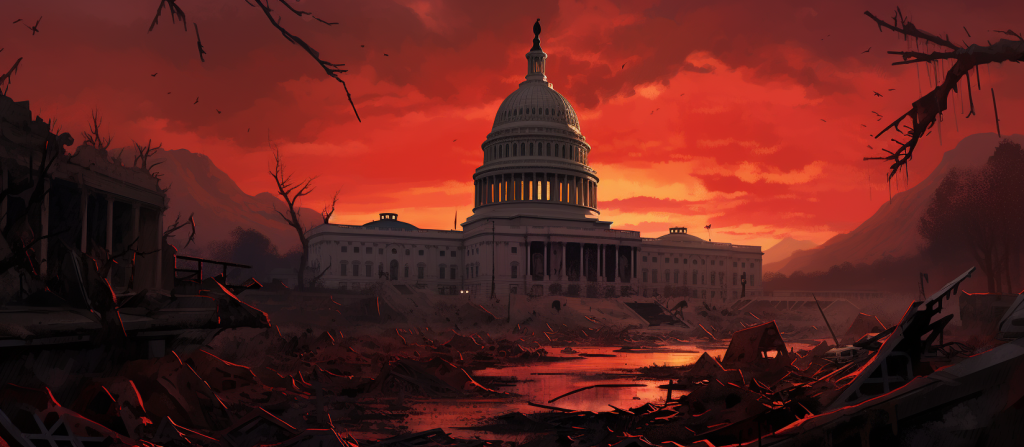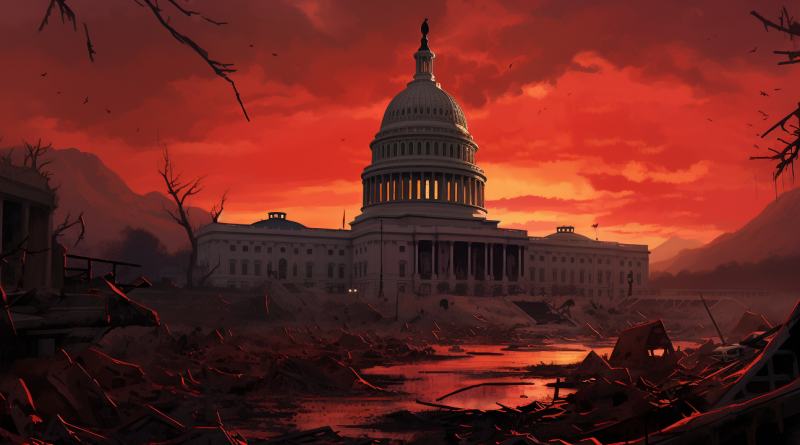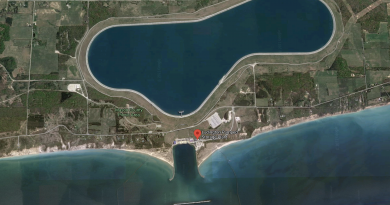The GOP Released Their Policy Blueprint For 2025. It’s A Mess.
Mostly because I’m a glutton for punishment, I decided to read through a bunch of this new “book,” Project 2025, that the Heritage Foundation recently published, outlining the ways in which conservatives plan to finish what they started– and failed to do- under the Trump Administration, in basically eviscerating the federal government and eliminating regulatory power mostly for the benefit of big business, but in the name of “freedom and liberty”. It’s not a surprising thing to read, but it is notable in that conservatives are, at least in the most visible, public sense, not very interested in actual governance or policy these days. It was captured perfectly by a guy in the Trump Administration who once admitted that, well, that’s really the entire platform of the party.
Background. Project 2025 refers, of course, to the year in which the GOP hopes to retake the White House. It’s unclear how possible this is at the present time: Biden’s approval ratings aren’t great, but they could be a lot worse. The favored pick for the Republican nomination may well be in jail by the time of the 2024 election, although he’s still far ahead in the lead. Absolutely nothing seems capable of derailing the religious support of his fan base. His favorability ratings are mediocre, but haven’t waned one bit.
But it’s anyone’s guess what’s going to happen: Joe Biden is a thousand years old. Let’s also remember that Georgia and plenty of other red state strongholds actually went for Biden in 2020. And the country will, by the time of the 2024 election, have millions fewer Boomers than it did in 2020, and millions more young people, who are far more likely to be people of color (and therefore far less likely to vote for a party that embraces white nationalism). So, the sane ones among us are desperately hoping that there’s some sort of recognition that actually fascism is bad, and we won’t have another four years of climate denialism and gleeful cruelty by people hellbent on eviscerating the federal government.
But we do need to talk about the Heritage publication.
Generally. Is there any substance in it? Yeah, and I’m actually impressed that there is a nonzero amount of substance offering occasionally legitimate structural critiques of federal agencies. Ballotpedia defines the “administrative state” through five pillars, of nondelegation, judicial deference, executive control of agencies, procedural rights, and agency dynamics. In short, there are disagreements in public policy, jurisprudence, and even within Constitutional law, about what rights government agencies have to do certain things. The conservative complaint is that most of these agencies were created by legislative majority decision, but since that time, have reigned without legislative authority, empowered instead by their own bureaucratic momentum (the fact that they exist in the first place). People sometimes refer to rulemaking and regulatory agencies as the fourth branch of government for this reason.
It’s a legitimate complaint, and I do think that the sprawling federal regulatory apparatus is in fact way too big. But where I find it coming unglued is what the takeaways are. I have thus decided to look at two sections in this book about the two areas in which I’m probably most knowledgeable: transportation and energy.
Energy. This section is written by a lawyer, Bernard L. McNamee, who spent his career in the oil and gas industry before being hired into the offices of attorneys general in both Texas and Virginia before getting job in the Trump Administration working on FERC. The section is, for the most part, absolute dreck. McNamee keeps referring to things like “pure” scientific research while excoriating the sins of renewable energy, without actually ever mentioning why he thinks that renewable energy research (e.g. by way of NREL or Argonne) aren’t “pure” scientific research. He refers to shortages of gas and oil, even though no such shortages really exist, and complains about everything ranging from “extreme green” policies to ESG, which is a voluntary framework that the federal government doesn’t really control (although the SEC could probably do more to rein in!). Similar to what happens in the next section on transportation, McNamee’s obsession with not prioritizing one fuel over another is a euphemistic way of saying that he only cares about oil and gas.
One of the conservative talking points about energy is that energy efficiency and renewables are stupid, because we can achieve energy independence by drilling for more oil. This is one of those statements that I’d categorize as “not completely untrue, but completely irrelevant because there are better truths.” Distributed generation in the form of smaller-scale power sources improves power grid resiliency. Investment in fossil fuels– already lavishly subsidized- does not. Even before we get into the question of climate change, the fact remains that oil and gas extraction creates a large revenue stream for the people selling them, while inculcating the idea that we simply cannot even consider an alternative to the fossil fuel paradigm. In terms of economics, this manifests in high switching costs (expensive to switch to an electric car) and low elasticity. Gas prices are high? People are still gonna buy gas, because they’re stuck with cars.
After that, we get into the fact that renewables actually turn out to be cheaper than fossil fuels.
But yes, by all means, let’s take the word of a guy who spent much of his career collecting a six-figure paycheck working for the oil and gas industry?

Transportation, by Diana Furchtgott-Roth (Twitter). Furchtgott-Roth’s contention is that the USDOT has become a grantmaking and lending organization rather than a regulator, and that transportation asset owners, rather than the federal government, should have more control than they do. At face value, this seems like a reasonable contention. But this is again where a legitimate complaint leads to a completely unhinged conclusion. DFR’s major thing is that she wants way more privatization and way less investment in public transit– she cites micromobility solutions, ridesharing, and a possible future that includes autonomous vehicles that, she says, can alter the nature of public transit. What does any of that mean?
Well, we don’t know, but it get worse. She criticizes the Federal Railroad Administration and implies that the agency isn’t focused on safety but should be focused on cost-effective regulations, which is right-wing slang for “eliminate safety regulations because all regulations cost companies money.” DFR’s section can be summarized by her use of the term “tech-neutral.” Referring to being technology-agnostic or technology-neutral is often a euphemistic way of saying that we shouldn’t invest in optimal solutions, but should rather, well, I don’t know, maybe invest in nothing and give that money back to rich people, whence the wealth will trickle down, right? Or something?
We can’t take the policy seriously because it’s not real policy. It’s possible for us to read into some of the critiques and identify them as legitimate, but we can’t take things seriously when the opening line is that the Department of Education should simply be eliminated because freedom. Anyway, as Trump is not unlikely to be trying to run a campaign from federal prison next year, it’s anyone’s guess as to what’s going to happen, but it’s probably pretty safe to say that these ideas are, much like the cars in Diana Furchtgott-Roth’s ideal transportation infrastructure setup, stopped in traffic for the foreseeable future.
You can view the book here. Thanks to fellow Kogod MBA Leah Garden for bringing this to my attention with a great article on it!




